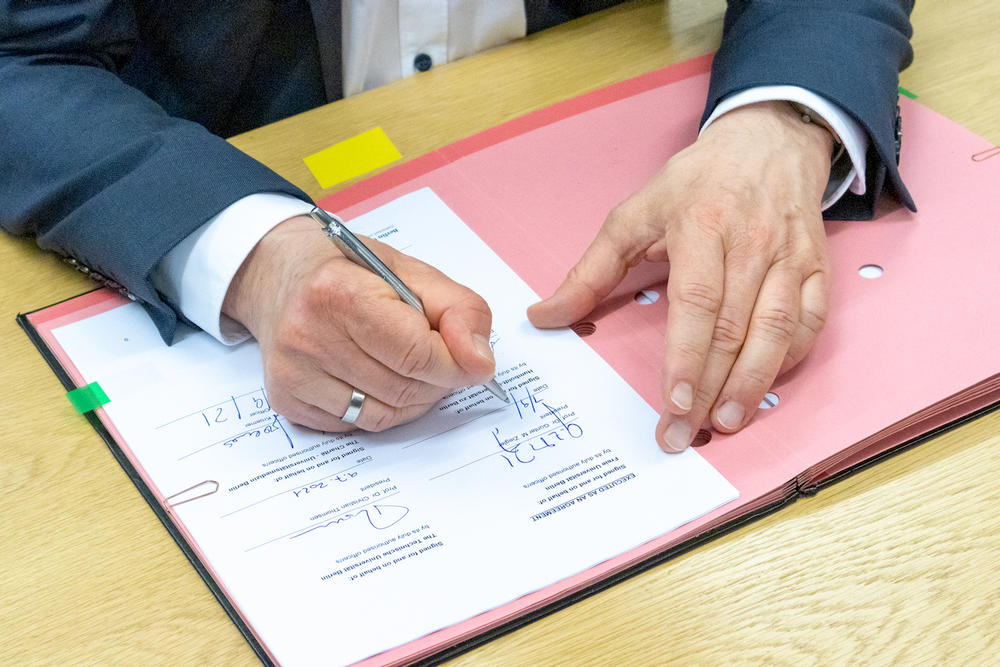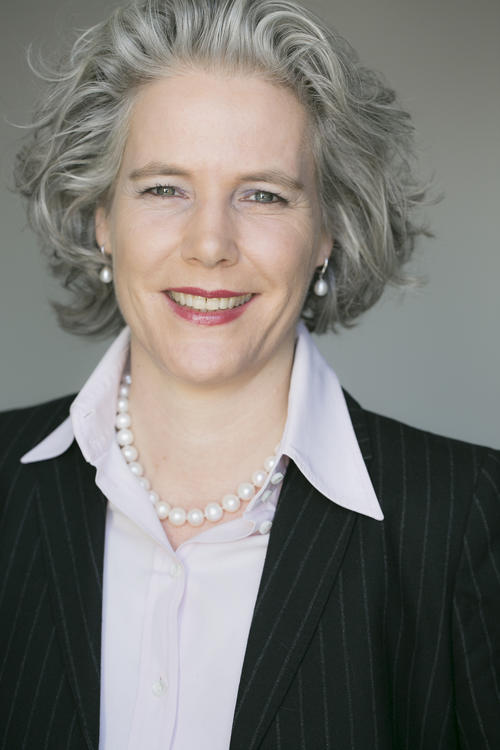An Added Value for The Teaching and Learning Landscape in Berlin
The Berlin University Alliance concludes a framework agreement for teaching. In an interview, Eva Inés Obergfell, spokesperson for the Teaching and Learning Steering Committee, talks about the goals and benefits for students
Jul 12, 2021
In July 2021, the Board of Directors of the Berlin University Alliance signed a Framework Agreement for Teaching.
Image Credit: Berlin University Alliance
The idea has been around for a long time, but now it has become reality: The four partner institutions of the Berlin University Alliance (BUA) – Freie Universität Berlin, Humboldt-Universität zu Berlin, Technische Universität Berlin, and Charité – Universitätsmedizin Berlin – have concluded a Framework Agreement on Teaching to create more in-depth structures for cooperation in the area of teaching and learning. Professor Eva Inés Obergfell, vice president for teaching and learning at Humboldt-Universität zu Berlin and spokesperson for the BUA steering committee, Teaching and Learning was involved in the process from the very beginning.
Ms. Obergfell, what is the framework agreement all about?
First of all, it is something special that teaching is being supported for the first time as part of an excellence program. This is also welcomed by the students I spoke to during the process of creating the framework agreement. By including study and teaching as a cross-cutting theme, BUA has sent a clear signal in this area.
The framework agreement now forms the basis for cooperation between the four partner institutions in the area of teaching and learning. There is already a wide range of cooperation between the partners, for example in the form of cooperative master's degree programs. The concept now agreed is intended to intensify this cooperation even further and simplify administrative processes. The agreement thus takes our cooperation to a new level. In this way, we create overall added value for the teaching and learning landscape in Berlin.
Eva Inés Obergfell, Vice President for Teaching and Learning at Humboldt-Universität zu Berlin and Spokesperson of the BUA Steering Committee Teaching and Learning
Image Credit: Matthias Heyde
What are the concrete benefits for the students of the partner institutions?
Students can benefit from the full range of alliance activities and complementary services offered by the institutions. For example, you have simplified and expanded access to the secondary audience. We want to offer particularly students with an affinity for research certain opportunities for participation in an integrated research environment and, if possible, bring them into contact with the new initiatives in the field of the Grand Challenges. The idea is to let students participate in scientific exchange at the highest level of research. From student projects like the one in the Student Research Opportunities Program to new teaching opportunities, many things are conceivable. The method of research-based learning plays an essential role here. We see our students as the junior researchers of tomorrow and would like to offer them a stimulating research context right from the start.
How long has the framework agreement been in the pipeline and who was involved in the process?
Following the launch of the BUA, we, as the steering committee, established a working group and charged it with developing a framework agreement for expanded offerings in teaching. Last year, after review by the legal departments of the four partner institutions and a decision by the steering committee, the completed draft was submitted to the BUA management. However, we concurred that the agreement should also be coordinated in the various committees of the institutions. There was no model for this before, as something comparable did not yet exist. This process took some time, but was worth it in the end.
Fortunately, the framework agreement has met with a very positive response in the committees. There were no significant objections or proposals for changes to the content. This shows us that the work in the working group “BUA-Studierende” (BUA students) has been successful and is appreciated. This is a very encouraging sign for the BUA as a whole.
The framework agreement allows for joint study programs from multiple BUA partners. What exactly can we imagine by this? And what do the new BUA study programs offer students?
We already have cooperative study programs, for example that of media informatics, in which Freie Universität, Humboldt-Universität and Technische Universität Berlin are involved. These study programs were initiated on the professional initiative of individual colleagues. For this purpose, the participating presidiums have each concluded a cooperation agreement.
With the BUA joint degree study programs, we would like to offer additional joint, cross-cutting study programs that address the themes of the alliance and bring together the complementary strengths of the partner institutions. Students enrolled in a joint bachelor's or master's degree program are enrolled in all participating partners so that they can use the courses offered by all partners without restriction.
What happens to existing cooperative study programs?
We can award the BUA label to the existing study programs, under consideration of certain criteria. One example is the Bioinformatics program at Freie Universität Berlin and Charité, which now forms the first BUA study program. To receive such recognition, the study program in question must, above all, be interdisciplinary, incorporate the methodology of research-based learning, and address the BUA goals. It will be greatly appreciated if other cooperative study programs seek the BUA label.


